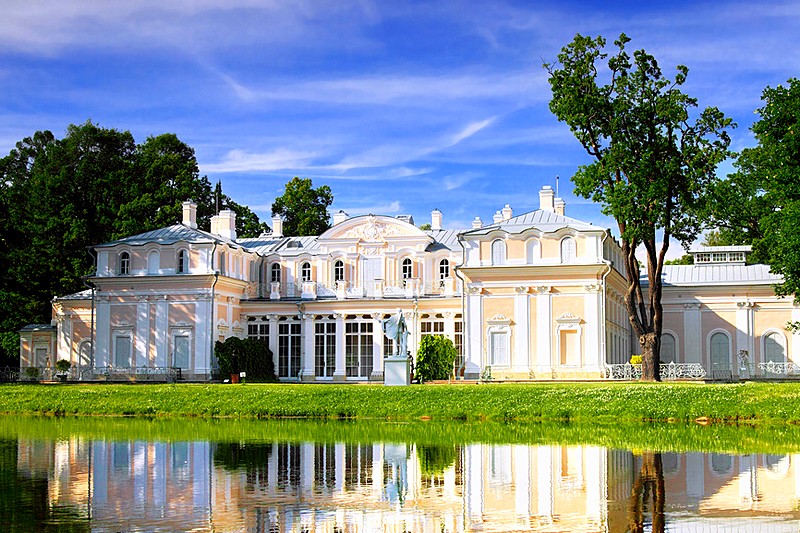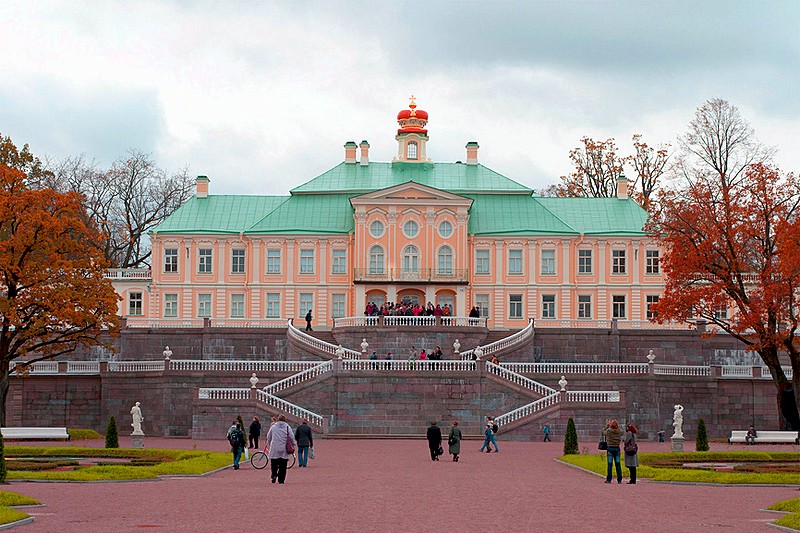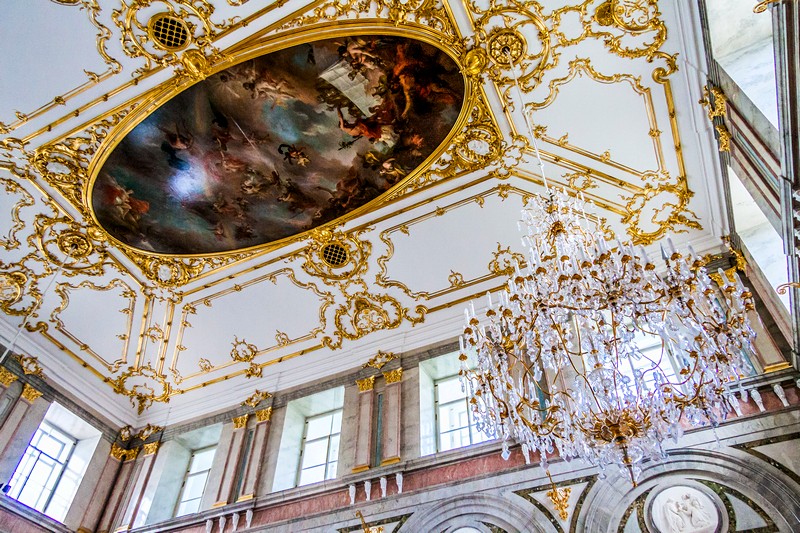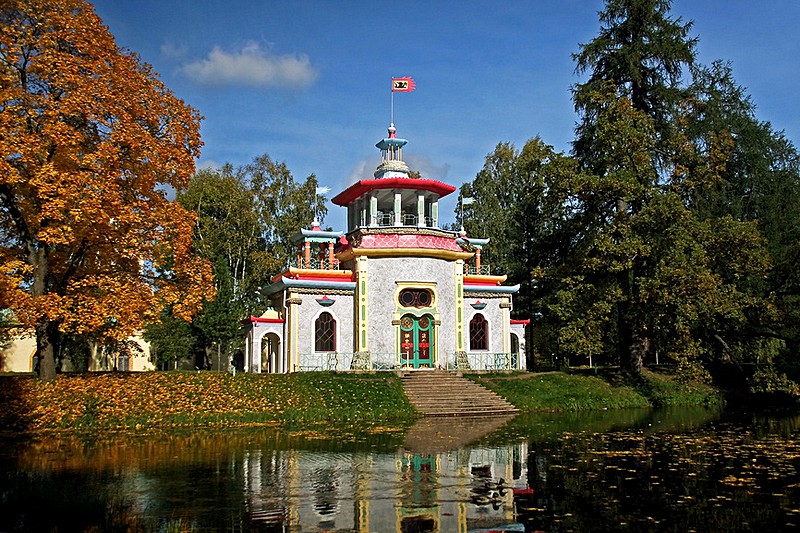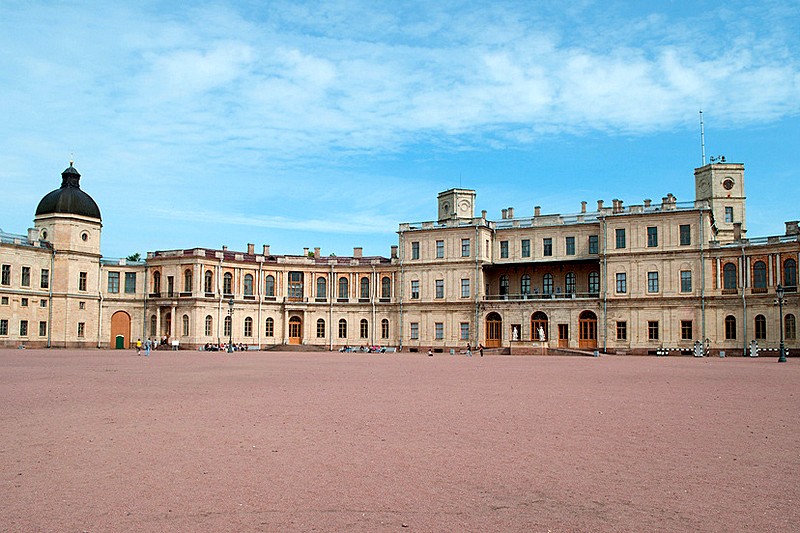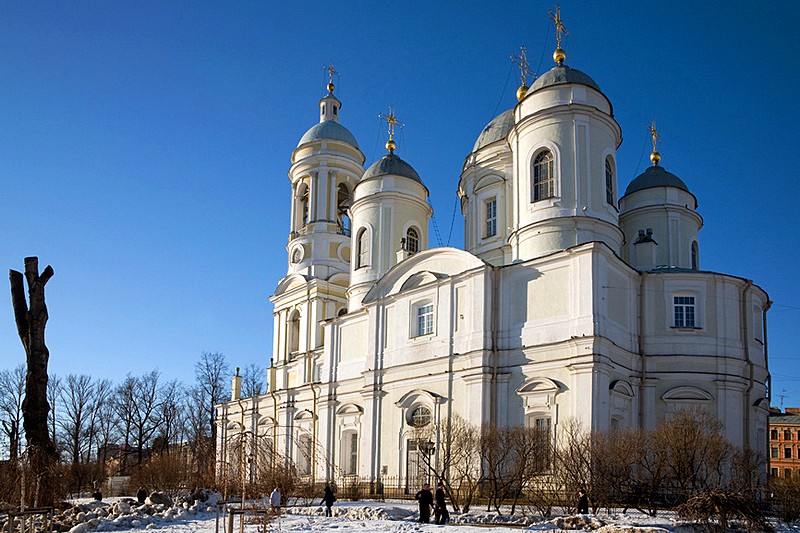Antonio Rinaldi

Architect
Born: Italy - c.1709
Died: Rome - 10 April 1794
Rinaldi was presumably born in the south of Italy, and trained by the great Neapolitan architect Luigi Vanvitelli, to whose academic simplicity and rejection of rococo excesses Rinaldi remained true. He arrived in St. Petersburg via Ukraine, where he had worked for Hetman Kirill Razumovsky, and in 1754 was appointed court architect for the young court of the future Peter III and Catherine II. At their residence in Oranienbaum he built the Palace of Peter III (1758-1760), the Chinese Palace (1762-1768), and the Ice-Slide Pavilion (1762-1774). Rinaldi's reputation rests almost as much on his interior designing as his architecture, and the superbly decorated halls of the Chinese Palace were among the first of his masterpieces in this area.
His first major commission in the city of St. Petersburg was, uncharacteristically, an industrial building - the Tuchkov Buyan Hemp Warehouses (1763-1772). He then became the court architect for Catherine's favourite, Count Grigory Orlov, designing for him the Gatchina Palace (1766-1781, later redesigned by Vincenzo Brenna) and his undisputed masterpiece the Marble Palace (1768-1785), one of the finest early neoclassical buildings in St. Petersburg. Also for Orlov, he designed several monuments and structures at Tsarskoye Selo, among them the Kagul Obelisk (1771), the Chesma Column (1776), and the Chinese Theatre (1776).
During this period he supervised the completion of two major churches in St. Petersburg, the Catholic Church of St. Catherine on Nevsky Prospekt (completed 1782) and the Prince Vladimir Cathedral (1766-1773). Outside St. Petersburg he was also responsible for two sublime baroque churches, the Church of the Resurrection in Pochel, Bryansk Region (1765-1771) and the St. Catherine Cathedral in Kingisepp (1764). While working on the stone building of the Bolshoy Theatre in 1775, Rinaldi fell from scaffolding and was unable to complete the project.
Rinaldi resigned his post due to ill health in 1784 and returned to Italy, where he died in 1794.
Works: Tuchkov Buyan Warehouses, Marble Palace, Catholic Church of St. Catherine, Prince Vladimir Cathedral, Palace of Peter III (Oranienbaum), Chinese Palace (Oranienbaum), Ice-slide Pavilion (Oranienbaum), Kagul Obelisk (Tsarskoye Selo), Chesma Column (Tsarskoye Selo), Chinese Theatre (Tsarskoye Selo), Grand Palace (Gatchina)
Monuments and memorials: Monument to Italian Architects on Manezhnaya Ploshchad
Connected with: Peter III, Catherine II the Great, Count Grigory Orlov


